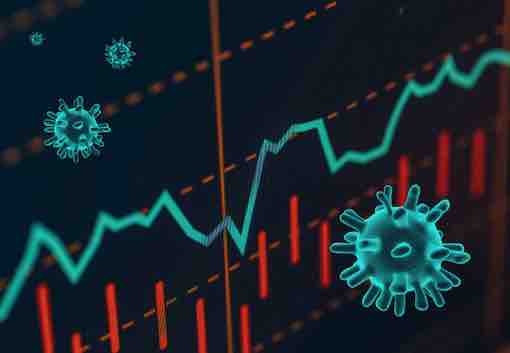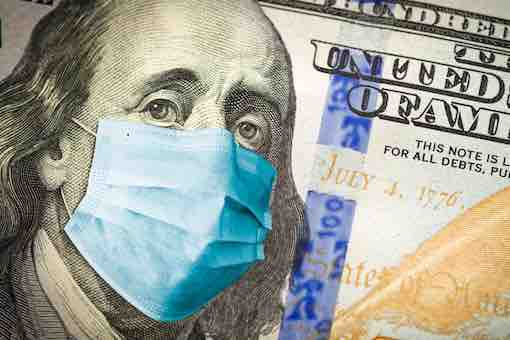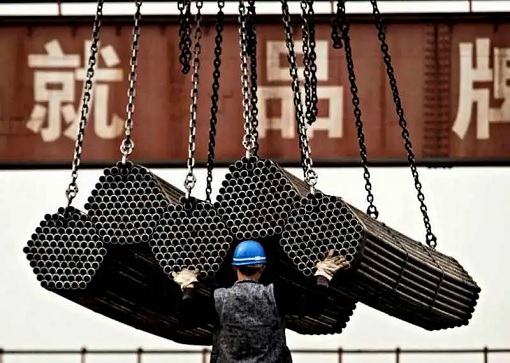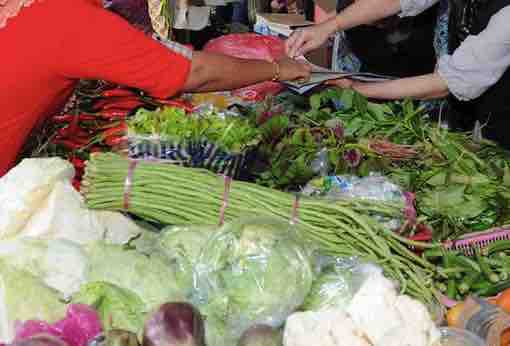When Coronavirus spread to the United States last March, the Wall Street was so shocked with the outbreak that the Dow Jones crashed nearly 3,000 points – about 13%. Everyone was panicked as none had experienced such a pandemic before. After all, the last time the world faced a pandemic at a similar scale was during the Spanish flu pandemic – about 100 years ago.
Also known as the 1918 flu pandemic, the Spanish flu had infected 500-million people worldwide – about a quarter (25%) of the world’s population at the time. Lasting from January 1918 to December 1920, the pandemic is estimated to have killed between 30 million to 50 million people worldwide. Some said the death toll was as high as 100 million – one of the deadliest pandemics in the human history.
But 12 months later, the Coronavirus has a new official name – Covid-19 – and the pandemic appeared to be under control in the U.S. From 300,000 daily cases during its peak, the daily infections have now dropped to about 10,000. The health crisis is not over, but for the first time since the Covid outbreak, bankers and investors no longer fear the Covid-19.

Instead, investors and portfolio managers have been facing a new enemy since March this year – inflation. As the rollout of vaccines escalates, the economy too increasingly overheats. The Covid vaccines are proving so effective that inflation is now the top risk. The Dow bottomed at 18,592 on March 23. Today, the index is up more than 80% since then.
The CDC (Centers for Disease Control and Prevention) has even released new guidelines advising fully vaccinated adults to ditch their masks. As summer travel and consumer spending rebound, revenues for restaurants, leisure and hospitality companies, airlines and cruise ships continue to rise. The optimism has also been boosted with free money given by Uncle Sam.
In March, President Joe Biden signed the US$1.9 trillion American Rescue Package, sending fresh aid of up to US$1,400 cash to most Americans. The people have so much cash that Goldman Sachs says the U.S. economy could register GDP growth of 7% similar to China in 2021, and even 8% toward at the end of this year – the fastest GDP growth since 1965.

On Wednesday, the Federal Reserve Chairman Jerome Powell said the interest rates may come as soon as 2023, a year earlier than 2024 initially scheduled, due to the inflation projection of 3.4% this year. Some analysts and economists have even predicted that there could be two rate hikes in 2023. And it’s not hard to see the signs of inflation now.
U.S. producer prices for processed poultry jumped to an all-time high in May, climbing 2.1% in the eighth straight monthly increase. The consumer price index, meanwhile, rose at a 7.5% annual rate in the first quarter. Billionaire and investor Warren Buffett said – “We are seeing very substantial inflation. We are raising prices. People are raising prices to us, and it’s being accepted.”
For example, chicken prices are at all-time highs as the poultry producers struggle to keep up with the growing demand, with labour shortages at meat plants and severe winter storms that killed thousands of birds. To make matters worse, McDonald’s, KFC and Burger King have all recently introduced new chicken sandwiches at a time of surging costs for animal feed and restriction to expand poultry farms.

But chicken is not alone. Across the U.S., used car prices in April jumped to an average of nearly US$25,500. For instance, a 2017 Nissan Maxima with nearly 125,000 miles is listed for over US$20,500, as compared to a new 2021 model selling for US$37,090. The global shortage of microchip has slowed the production of new cars, sending buyers to used car market, hence pushing up the prices.
Besides a whopping US$2 trillion in savings that Americans have accumulated during the pandemic – because they can’t spend despite cash given by both Trump and Biden administrations – the inflationary pressures are also contributed by easy access to money, thanks to zero interest rate policy. The bullish stock market and real estate prices add even more pressure.
The United States is not the only country that is being hit with inflation. Any country worldwide that has managed to flatten the Coronavirus wave is facing the same problem. The economy will eventually overheat when demand growth outstrips supply growth – rising materials costs and diminished inventories. The trick is how to contain the inflationary pressure without damaging the economy.

In U.K., British consumer prices skyrocketed by more than expected last month due to a surge in fuel, electricity and clothing costs following the easing of Covid-19 restrictions. Inflation accelerated to 2.1% in the 12 months through May as compared to 1.8% projected by economists. April’s inflation of 1.5% was actually more than double – the highest level since the start of the Covid-19 pandemic.
As the Indian Covid-19 strain, now known as the Delta variant, fuels a third wave in Britain, there could be a delay in the scheduled reopening on 21 June. However, the country is paying more attention to the dangers of economic overheating than the worries about the cost of delaying the reopening of the economy. The wealthy households have £200 billion in savings with limited options to spend.
China’s rising producer price inflation (PPI) has definitely added fuel to the fire, spooking the world because it is a major buyer and supplier in global markets. If Chinese consumers willingly pay higher prices, the country is also exporting the inflation to the world. And if American consumers readily pay for Chinese goods, it would feed the inflation even more.

The Chinese government is discouraging local steel makers and coal producers from raising prices and allowing its currency to rise to a value unseen in years. And one of the carrots in its anti-inflation toolbox includes subsidies for small business owners. For now, consumers in China do not feel the price increases because manufacturers are being paid not to pass down the cost to users.
However, it’s not only countries that managed to contain the Covid pandemic that are facing the fear of inflation. Countries that are still struggling with the virus could easily hit with inflation, especially if the government is clueless and incompetent. For example, vegetable prices have hit the roof by up to 40% in Malaysia following lockdown in Cameron Highlands.
As 12,000 local and foreign workers were not allowed to leave home for work under the enhanced movement control order (EMCO), 65% of vegetable farm operators in Cameron were affected. As a result, the shortage of tomatoes, Japanese cucumbers, chillies, beans, cabbages, sweet peppers and all types of salad leaves has led to price increases.

To add salt to injury, agricultural materials such as fertilisers, seeds, pesticides, vegetable packaging and other farming essentials have also experienced price hikes. Drivers and clerks who were not able to work have also contributed to logistics and transportation problem. The disruptions in Cameron Highlands, which produces 565 metric tonnes of vegetables daily, has reduced the supply of vegetables to less than 40%.
In April Malaysia’s inflation rose 4.7% year-on-year – the highest since 2018. The average price of fuel – unleaded petrol RON95 – in April 2021 increased 61.4% to RM2.05 per litre as compared to RM1.27. Without subsidies, water, electricity, gas and other fuels rose 3.1% compared to last year. Out of 552 items covered in CPI (consumer price index), 366 items showed an increase in April 2021.
Other Articles That May Interest You …
- Hungry People Are Angry People – The Monarchies Have No Choice But To End The State Of Emergency
- China Had Given More Than 700 Million Doses – From Mobile Vaccination Bus To Billions Of Doses In Production
- It’s All About Easy & Fast Access To Vaccination – This Chart Shows Malaysia Is Among The Worst In ASEAN
- Malaysia Is Now Worse Than India – The Clueless Backdoor Government Prefers People Die Than Its Own Demise
- New Strategy To Vaccinate More People – Learning From The UK, Singapore Delays Second Dose To 6-8 Weeks
- Beware Of Indian “Double Mutant” Covid Variant – Israel Found Indian Strain Even Among People Already Vaccinated
- EU Finally Admits AstraZeneca Covid-19 Vaccine Can Cause Blood Clots – And UK Recommends Get Other Vaccines
- It’s Not Over Yet – New Waves Of Coronavirus Hit The World As Variants & Mutations Continue To Wreck Havoc
- Trade Surplus Of $535 Billion – Not Even The U.S. Trade War Or Covid Pandemic Can Destroy China Economic Powerhouse

|
|
June 17th, 2021 by financetwitter
|


|

|

|

|

|

|




























Comments
Add your comment now.
Leave a Reply